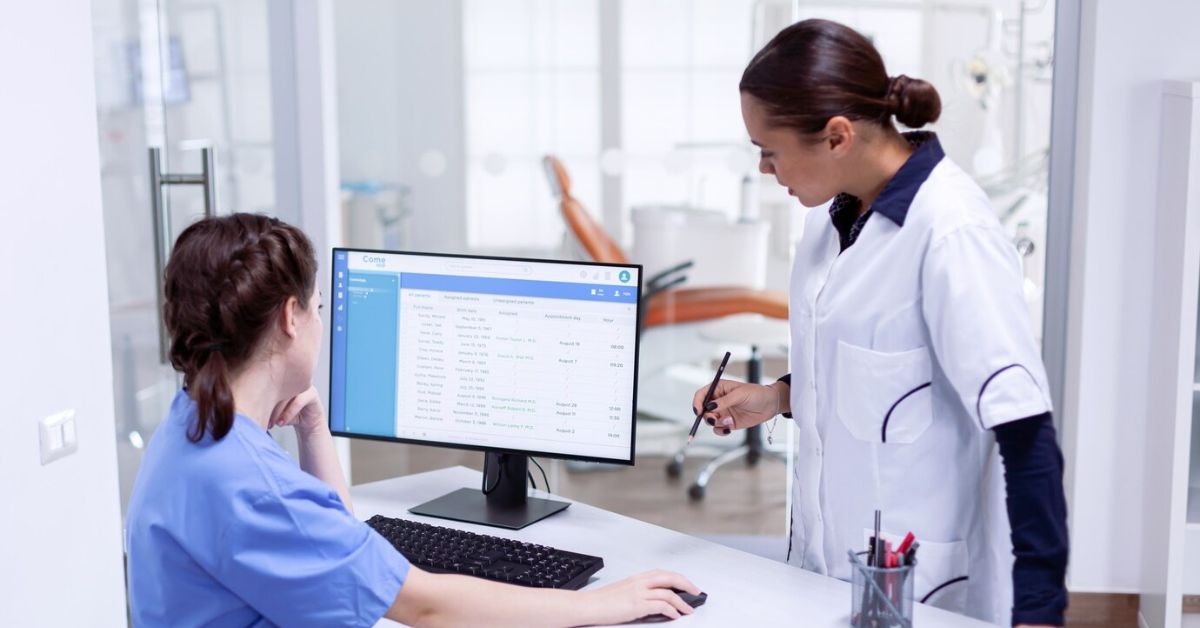Electronic Medical Records (EMR) software solutions have become an essential component of modern healthcare, streamlining patient data management, improving efficiency, and enhancing overall patient care. As the healthcare industry continues to embrace digital transformation, emr software solutions play a crucial role in ensuring accurate record-keeping, reducing administrative burdens, and optimizing clinical workflows.
What Are EMR Software Solutions?
EMR software solutions are digital platforms that store, manage, and secure patient medical records electronically. These systems allow healthcare providers to access real-time patient information, facilitate seamless communication between departments, and enhance decision-making with data-driven insights.
Key Features of EMR Software Solutions:
- Patient Data Management – Store and organize medical history, prescriptions, lab results, and imaging records.
- Automated Workflows – Reduce manual data entry and administrative tasks.
- Interoperability – Integrate with other healthcare systems for seamless data exchange.
- Security & Compliance – Ensure HIPAA compliance and protect sensitive patient data.
- E-Prescriptions – Digitally send prescriptions to pharmacies, reducing errors and improving efficiency.
- Billing & Coding – Streamline billing processes and ensure accurate insurance claims.
- Telemedicine Support – Enable virtual consultations and remote patient monitoring.
- Customizable Templates – Provide tailored workflows for different medical specialties.
Benefits of EMR Software Solutions in Healthcare
1. Improved Efficiency and Productivity
By digitizing patient records, EMR software eliminates paperwork, reducing the time spent on manual record-keeping and allowing healthcare providers to focus more on patient care. Automated workflows minimize administrative burdens, leading to faster and more efficient healthcare services.
2. Enhanced Patient Care
EMR solutions provide instant access to patient history, allergies, and previous treatments, enabling doctors to make informed decisions and deliver personalized care. Integrated decision-support tools can alert medical professionals to potential drug interactions and suggest evidence-based treatment plans.
3. Better Data Accuracy and Security
Traditional paper records are prone to errors and misplacement. EMR software ensures accurate, up-to-date, and secure patient information, reducing the risk of medical errors. With encryption and multi-factor authentication, patient records remain safe from unauthorized access and cyber threats.
4. Seamless Communication and Collaboration
EMR solutions facilitate communication among healthcare professionals, improving coordination between doctors, nurses, and specialists for better patient outcomes. Secure messaging and document-sharing features allow real-time collaboration, reducing miscommunication and enhancing patient care.
5. Cost Savings
Automating administrative tasks reduces operational costs, minimizes paperwork expenses, and optimizes resource allocation within healthcare facilities. Hospitals and clinics can streamline billing, reduce claim denials, and minimize redundant tests by improving data accessibility.
6. Compliance with Regulatory Standards
EMR software solutions help healthcare providers maintain compliance with legal and industry regulations, such as HIPAA in the U.S. and GDPR in Europe. Automated compliance tracking ensures that organizations meet necessary standards while reducing the risk of legal issues.
7. Integration with Wearable Devices
Many modern EMR solutions integrate with wearable health devices, such as smartwatches and fitness trackers. This allows healthcare providers to monitor patients’ vital signs remotely, track chronic conditions, and provide proactive healthcare interventions.
Top EMR Software Solutions
1. Epic Systems
A widely used EMR platform known for its comprehensive features, scalability, and strong interoperability with other healthcare systems. It provides powerful analytics and decision-support tools to enhance patient care.
2. Cerner
Offers advanced analytics, customizable workflows, and cloud-based capabilities to enhance patient care and administrative efficiency. Cerner’s AI-powered insights help healthcare professionals make data-driven decisions.
3. Allscripts
A versatile EMR solution that integrates seamlessly with third-party applications and offers mobile accessibility for remote healthcare management. It also supports telehealth functionalities, making it an excellent choice for hybrid healthcare models.
4. eClinicalWorks
Provides cloud-based EMR solutions with AI-driven automation, telehealth features, and integrated patient engagement tools. It focuses on streamlining workflows for small to mid-sized healthcare providers.
5. NextGen Healthcare
Designed for small to mid-sized healthcare providers, offering user-friendly interfaces, advanced charting, and billing automation. It includes tools for managing population health and improving patient engagement.
6. Meditech
A trusted EMR provider offering fully integrated solutions tailored to hospitals and large healthcare systems. Meditech emphasizes ease of use and interoperability, ensuring seamless data sharing across different healthcare networks.
Choosing the Right EMR Software Solution
When selecting an EMR system, healthcare providers should consider factors such as:
- Ease of Use – A user-friendly interface ensures quick adoption among staff.
- Integration Capabilities – The ability to connect with existing systems, such as lab equipment and billing software.
- Customization – Tailored workflows and templates for different medical specialties.
- Compliance & Security – Adherence to healthcare regulations and robust security measures.
- Cost & Scalability – Pricing should align with the organization’s budget while supporting future growth.
The Future of EMR Software Solutions
As technology advances, EMR software will continue evolving with AI-driven automation, predictive analytics, and enhanced telemedicine capabilities. The integration of blockchain technology is also expected to improve data security and transparency in medical record-keeping.
Additionally, more EMR solutions will leverage machine learning to provide predictive insights, helping healthcare professionals detect potential health risks before they become critical issues. Personalized medicine, driven by AI and genetic data, will further enhance patient treatment plans.
Conclusion
EMR software solutions are transforming healthcare by enhancing efficiency, improving patient care, and optimizing administrative workflows. As technology continues to advance, adopting a reliable EMR system is crucial for healthcare providers looking to stay ahead in an increasingly digital world. By leveraging the power of EMR software, healthcare facilities can achieve greater accuracy, security, and operational excellence, ultimately leading to better patient outcomes and streamlined healthcare management.
Healthcare providers that invest in modern EMR solutions will not only enhance operational efficiency but also deliver superior patient experiences. The future of healthcare is digital, and EMR software solutions are at the forefront of this transformative journey.











